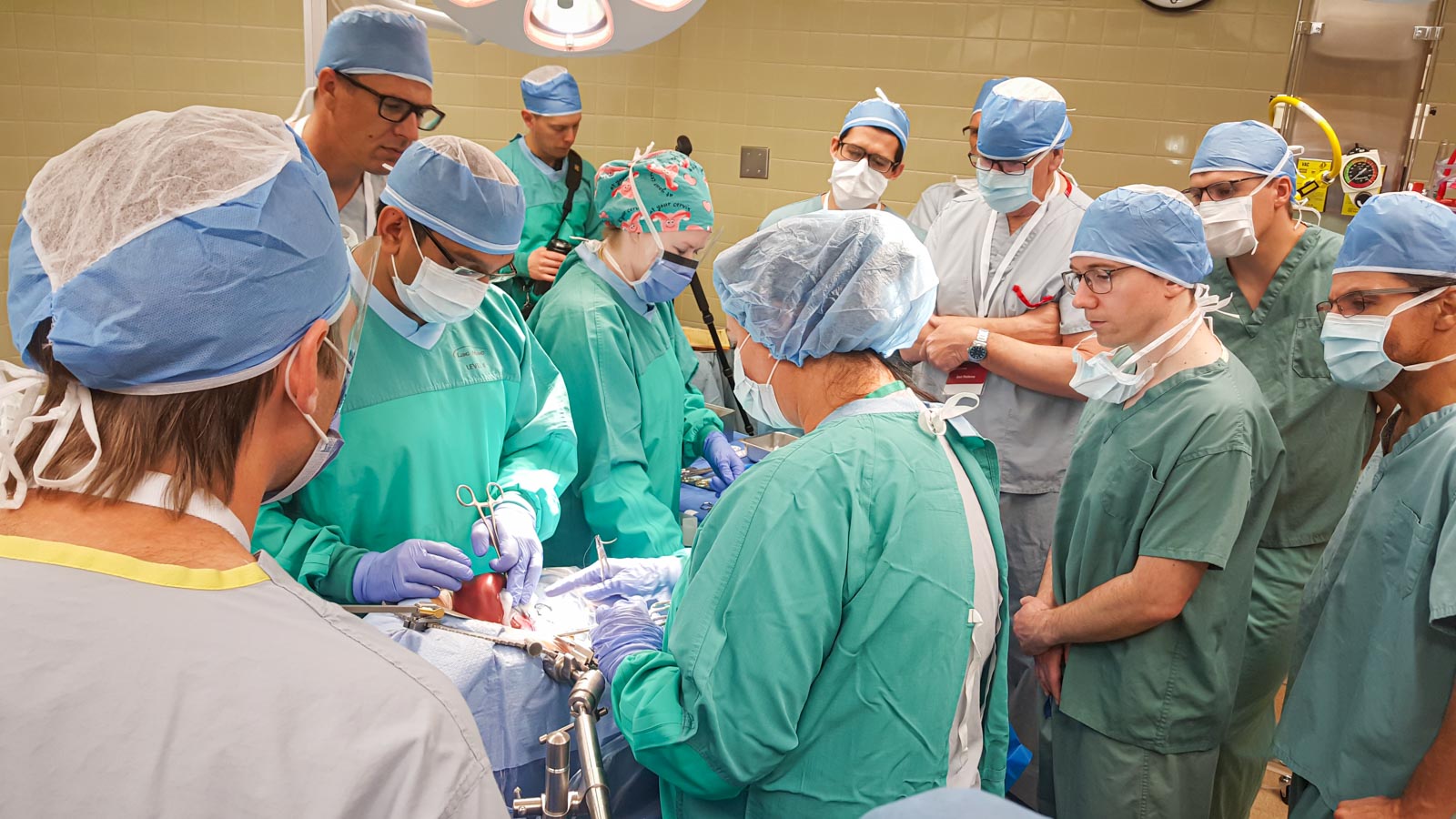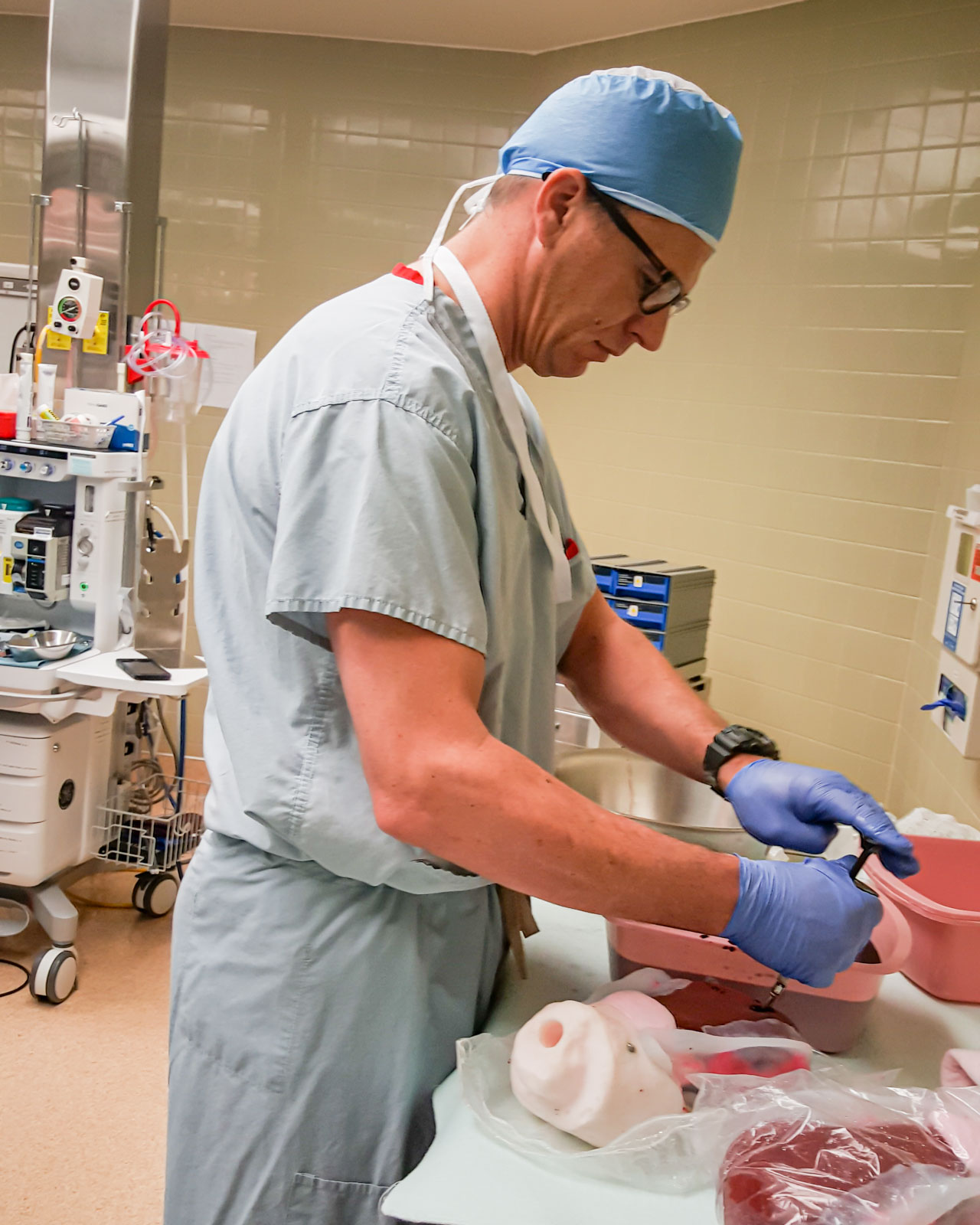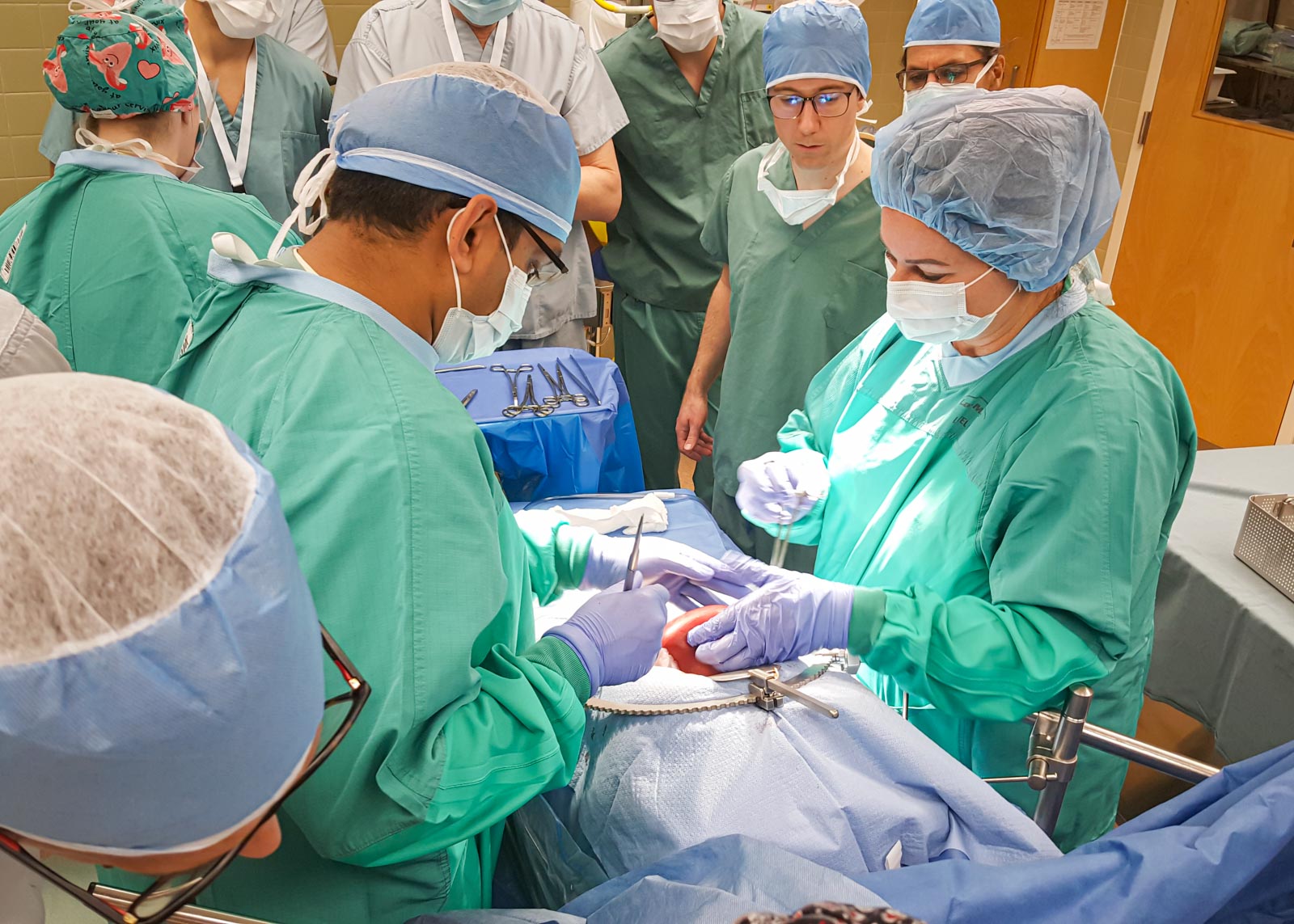Hysterectomy Training
 Southern Alberta health professionals recently received life-saving training during a unique learning experience in Brooks.
Southern Alberta health professionals recently received life-saving training during a unique learning experience in Brooks.
A group of ten physicians and several nurses took part in a first-of-its-kind Emergency Caesarian Hysterectomy Course on May 3 at Brooks Health Centre. Sponsored by RhPAP and the Brooks & District Health Foundation, the session was a first for rural physicians and nurses in the Alberta Health Services (AHS) South Zone.
The full-day, team-focused training included classroom and hands-on instruction in the operating room, with simulations focused on performing emergency hysterectomies on artificial tissue.
Dr. Kristin Hoffmann led the event, with the goal of giving rural obstetrical surgery teams skills and knowledge that may help save the life of a female patient who is bleeding significantly during childbirth, putting her life at risk. Dr. Hoffman says the ability to perform an caesarian hysterectomy is an advanced skill for rural health professionals to possess, particularly if you are in a rural location with limited support.
“It’s good to get a basic skill set, that you at least know what to do, and get these patients out of here alive,” she explains.
An obstetrician and gynecologist from Medicine Hat Hospital, Dr. Hoffmann has been working for a couple years with Brooks staff to upgrade their skills on high acuity, low occurrence events, such as emergency caesarian hysterectomies.
To practice with someone who does hysterectomies on a regular basis, and give us some tips… is huge. – Dr. Murtaza Amirali
 Randi Galenzoski, a registered nurse and clinical nurse educator for Medicine Hat and Brooks, said the experience that Dr. Hoffman offers is valuable.
Randi Galenzoski, a registered nurse and clinical nurse educator for Medicine Hat and Brooks, said the experience that Dr. Hoffman offers is valuable.
“In having education like this, I think it’s really important for patient safety, and for the staff to really feel that they’re advocating for their patients,” said Galenzoski.
Dr. Murtaza Amirali has experienced two emergency caesarian hysterectomies during his physician education and was thankful for the opportunity to learn from Dr. Hoffmann.
“To practice… with someone who does hysterectomies on a regular basis, and… give us some tips, and take us through the learning process is huge,” said Dr. Amirali, a family physician with operative obstetrical skills at Medicine Hat Hospital.
Taber’s Dr. Wes Steed admitted emergency situations can be overwhelming in a rural setting.
“Anything you can do to feel a little bit less [overwhelmed] is a good thing,” he said, noting he cleared his schedule when he heard about the training opportunity. “This [course] benefits me by helping my confidence level in difficult situations, and that’s good for my patients.”
Pincher Creek’s Dr. Jared Van Bussel agreed.
“Training like this, where you’re dealing with a crisis… allows that skill set to be sustained over a longer period of time,” he said. “It was also a good experience to be working among colleagues that I don’t get a chance to work with very often because they’re from a different site.”
I encourage physicians all over Alberta that provide enhanced surgical skills and obstetrical skills to participate in a course like this. – Dr. Erich van der Linde.
 Dr. Erich van der Linde helped host the event in his home hospital.
Dr. Erich van der Linde helped host the event in his home hospital.
“I think this [leads] to safer deliveries–better for moms, better for babies.” said Dr. van der Linde, thanking the Brooks & District Health Foundation and RhPAP for helping fund the artificial uteruses used in the operating rooms for the course.
He also noted having these skills available in a rural hospital reduces costs on the health-care system by reducing the need for patient transfers.
“I encourage physicians all over Alberta that provide enhanced surgical skills and obstetrical skills to participate in a course like this,” said Dr. van der Linde.
